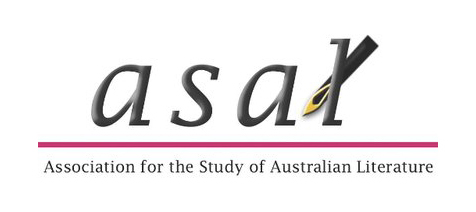10 Jan Vale Sneja Gunew (1946-2024)
Australian Literature has lost one of its finest and most innovative critics and theorists. In the 1980s and -90s Sneja Gunew’s name became synonymous with the emerging field of migrant, later multicultural writing, and her pioneering work in the promotion, documentation, and analysis of texts by Australian authors of non-Anglo-Celtic background laid the basis for what has since become an ever-expanding, and ever-diversifying area of creative and critical endeavour. The recognition, today seemingly self-evident, that Australian literature traces its origins to cultures and languages far beyond the Anglophone mainstream, is in no small part due to Gunew’s persistent efforts, often in the face of considerable opposition, to bring multiculturalism in from the margins to become a defining feature of Australian literature.
Sneja Gunew was born in Tübingen, Germany, her mother German, her father Bulgarian. The family arrived in Australia as displaced persons under the auspices of International Refugee Organisation in 1950. She was educated at the University of Melbourne (BA Hons), the University of Toronto (MA) and the University of Newcastle, NSW (PhD). While her postgraduate research had focused on Irish literature, she soon became a keen student of the emerging areas of feminist and postcolonial studies. These interests came together at Deakin University, where she taught from 1979 to 1993 and was part of the first interdisciplinary teams developing course material in women’s and literary studies for distance education students. It was also at this time that she started to question the absence of non-Anglo-Celtic writers from the Australian canon and ponder the conditions that gave rise to the ever-increasing discrepancy between the make-up of the nation and what was recognised as the national culture. Her first significant publication on this topic, ‘Migrant Women Writers: Who’s on Whose Margins?’ (Meanjin 1983) questioned, and sought to theorise, the relationship between those writers (especially women writers) considered to be migrants and the cultural mainstream, an issue she would return to repeatedly throughout her career. In the following decade she pursued such questions on multiple fronts, including edited collections of and on migrant/multicultural and women’s writing, bibliographical work (resulting in A Bibliography of Australian Multicultural Writers, 1992, later incorporated into AustLit), and policy work as a member of the Australian Council for the Arts. Her first authored book, Framing Marginality: Multicultural literary studies (1994), draws on Derridean deconstruction as well as postcolonialism and feminism to argue for the potential of writers considered as marginal to redefine categories such as that of a national literature.
Sneja Gunew left Australia in 1993 to take up the position of Professor of English at Victoria University on Vancouver Island, Canada, and in 1995 moved to the University of British Columbia, where she remained as Professor of English and Women’s Studies until her retirement in 2014. Her interest in, and engagement with, Australian literature and culture remained as strong as ever. She returned regularly to observe and contribute to national debates, increasingly locating them within comparative and international frameworks and in relation to evolving concepts such as comparative and critical multiculturalism, diaspora, cosmopolitanism, transnationalism and globalisation. In Haunted Nations: The colonial dimensions of multiculturalisms (2004), her reading of texts from Australia and Canada forms the basis for a critical scrutiny of the very term multiculturalism in different national settings, distinguishing its deployment as a state mechanism for managing diversity from her preferred notion of critical multiculturalism, ‘used by minorities as leverage to argue for participation grounded in their differences.’ Her last book, Post-Multicultural Writers as Neo-Cosmopolitan Mediators (2017) harnesses Lyotard’s sense of ‘post’ as going back to salvage elements of multiculturalism that have been forgotten in later debates, chief among which are its multilingual and cosmopolitan dimensions. Australian writers are juxtaposed to writers from Canada, the former Soviet Union and elsewhere to bring out their distinctive approach to issues within cosmopolitan debates. In retirement, Gunew continued her prolific research and publication schedule, pursuing interests in the intersection of multilingualism, identity, affect, gender and food within indigenous and minority cultures.
Sneja Gunew will be remembered as a prodigious scholar and original thinker who made a major contribution to the reorientation of Australian literary studies towards greater engagement with the world, both in the sense of international comparison and collaboration, and the ‘world within’, the diversity of cultures and voices that shape the national literature. Her numerous friends, research partners and former students are forever grateful for her unstinting generosity, intellectual and personal, and her quirky sense of humour will stay with us always.
Wenche Ommundsen



